What is a Property Management System (PMS)?
.jpg?u=https%3A%2F%2Fimages.ctfassets.net%2Fpqmtoyw9z10u%2F5mZNvA3Sb5O5K3KeBHeytf%2F65e44120bbb3f47bbe5cc375c15e2b75%2FWhat_is_a_Property_Management_System__PMS_.jpg&a=w%3D960%26h%3D613%26fm%3Djpg%26q%3D75&cd=2025-08-23T12%3A06%3A58.002Z)
Running a vacation rental business today is exciting and full of opportunities but it also comes with more moving parts than ever before. From managing multiple booking channels like Airbnb, Vrbo and Booking.com, to coordinating cleaning schedules, handling payments and delivering great guest experiences there’s a lot on a property manager’s plate.
That’s where a Property Management System (PMS) comes in. A PMS acts as the central hub for all your property management tasks, helping you streamline operations, reduce manual work and improve guest satisfaction.
For short-term rental hosts, boutique hotels and multi-property managers, the right PMS can make the difference between spending hours juggling spreadsheets and emails versus running a smooth, automated business that practically takes care of itself.
In this article, we’ll break down exactly what a property management system is, how it works, the key features you should look for and why it’s a must-have for today’s hospitality industry.
What is a Property Management System?
A property management system (PMS) is software that helps hosts organize and streamline their daily operations. Think of it as the command center for managing reservations, payments, guest communication and property upkeep, all in one place.
Instead of switching between spreadsheets, booking platforms and messaging apps, a PMS consolidates everything into a single dashboard, saving time and reducing errors. For short-term rental managers, this means being able to scale operations without adding stress.
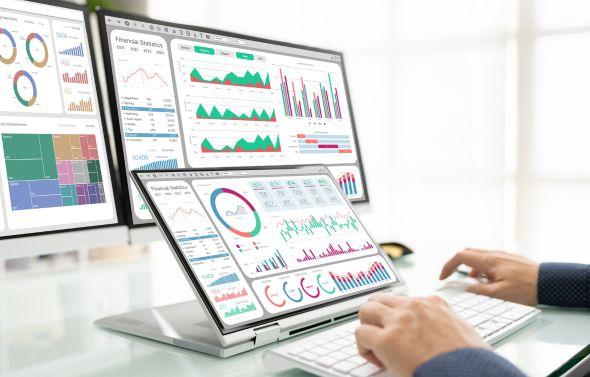
Property Management System vs. Property Management Software vs. Hotel Operating System
The terms Property Management System and Property Management Software are often used interchangeably. Both refer to tools that automate and centralize reservation management, guest data and operational tasks.
However, in the hospitality industry, you may also come across the phrase “hotel operating system.” While this term is more commonly used in hotels, it essentially describes the same concept a digital hub for handling operations, revenue management and guest services.
For vacation rentals and boutique accommodations, the key difference is that a PMS is usually more flexible, designed to connect with platforms like Airbnb or Vrbo and often cloud-based so property managers can access it from anywhere.

How a Property Management System Works
A Property Management System (PMS) works as the central hub that connects every moving part of a short-term rental business. Instead of using multiple tools to manage reservations, payments, guest communication and housekeeping, a PMS integrates these functions into one platform.
The goal is simple: streamline operations, reduce manual work and give property managers more time to focus on guest experience and growth.
Core functions in short-term rental operations
A PMS typically covers:
Function | What it does |
Reservation management | Syncs bookings from different platforms into one calendar |
Channel management | Prevents double bookings by updating availability in real time |
Payment processing | Handles deposits, invoices and refunds securely |
Housekeeping coordination | Assigns cleaning schedules automatically after check-outs |
Guest communication | Sends automated check-in instructions, reminders and review requests |
%20(1).jpg?u=https%3A%2F%2Fimages.ctfassets.net%2Fpqmtoyw9z10u%2FzUxZ7Wy2aUJm9oyrEP8Ao%2Fa1ebf799acb638e1598882ff8aa19158%2FGuest_data_and_customer_relationship_management__CRM___1_.jpg&a=w%3D590%26h%3D377%26fm%3Djpg%26q%3D75&cd=2025-08-23T12%3A13%3A37.894Z)
What Does a Property Management System Do for hosts?
At its core, a PMS helps hosts:
Handle reservations from multiple booking platforms.
Automate communication with guests before, during and after their stay.
Manage payments and track invoices seamlessly.
Assign tasks like cleaning, check-ins and maintenance.
Analyze performance with reports and key metrics.
In short, a PMS isn’t just a tool for convenience, it’s an essential system for scaling vacation rental businesses efficiently and delivering top-notch guest experiences.
How a PMS Supports Short-Term Rental Operations
Function | What it does | Benefit for hosts |
Reservation management | Centralizes bookings from Airbnb, Vrbo, Booking.com into one calendar | Eliminates double bookings & saves time |
Channel manager | Syncs availability across multiple booking channels in real time | Prevents overbooking & boosts occupancy |
Payment processing | Handles deposits, invoices, refunds and automated billing | Streamlines cash flow & reduces manual work |
Housekeeping & maintenance | Assigns cleaning/maintenance tasks after check-outs | Ensures smooth turnovers & guest satisfaction |
Guest communication | Automates emails, check-in instructions and review requests | Improves guest experience & customer loyalty |
CRM & guest data | Stores guest details and stay history | Enables personalized service & repeat bookings |
Revenue management | Adjusts rates dynamically based on demand | Maximizes revenue & occupancy rates |
Key Features of a Property Management System
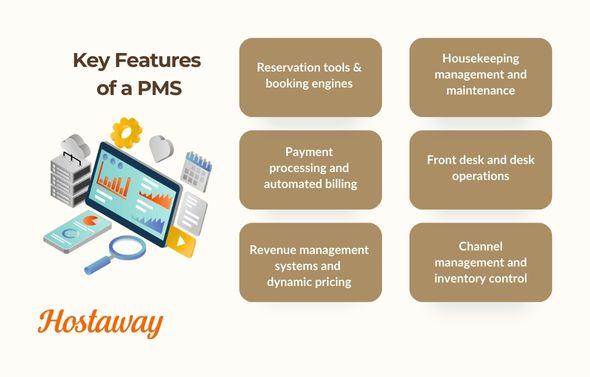
Key Features of a Property Management System
Every property management system is built differently, but most of them share a set of key functions that make running a vacation rental or boutique hotel much easier. These features help reduce manual work, improve efficiency and create a smoother stay for guests.
Below are some of the most important features you’ll find in a modern PMS:
Front desk and desk operations
Even though many vacation rentals don’t have a physical reception, the PMS often comes with front desk functionality similar to what’s used in hotels. For boutique hotels and serviced apartments, this means being able to:
Assign rooms or units with ease.
Track check-ins and check-outs in real time.
Maintain a digital record of occupancy and availability.
Reservation tools and booking engines
A PMS usually includes an online booking engine or integrates with one, allowing direct reservations through your website. This feature is crucial for increasing bookings through your property's website, which reduces reliance on third-party platforms and saves on commission fees.
With a booking engine, guests can:
See live availability.
Choose room types or property units.
Pay securely online.
Payment processing and automated billing
Handling payments is one of the most important parts of running a rental business. A PMS makes this simple by:
Accepting credit card payments securely.
Automating deposits, refunds,and invoices.
Supporting multiple currencies for international guests.
Some systems even integrate automated payment processing to eliminate manual errors and ensure transactions are handled safely.
Housekeeping management and maintenance
Keeping properties guest-ready is another major challenge, especially for managers with multiple listings. A PMS can:
Assign cleaning tasks automatically after check-outs.
Track maintenance issues and schedule repairs.
Provide staff with a mobile app so they can update tasks on the go.
This ensures a faster turnaround between stays and maintains property standards.
Revenue management systems and dynamic pricing
Modern PMS solutions often include revenue management systems or integrate with third-party providers. These use dynamic pricing tools to automatically adjust nightly rates based on:
Competitor pricing.
Local events.
Channel management and inventory control
A PMS typically comes with or integrates into a channel manager, which syncs your property listings across online booking platforms like Airbnb, Vrbo and Booking.com.
Availability is updated in real time.
Inventory across multiple properties is tracked automatically.
Pricing changes are reflected instantly across channels.
This prevents double bookings and keeps listings consistent.
Key PMS features at a glance
Feature | What it includes | Why it matters |
Front desk tools | Digital check-ins, room assignments, occupancy tracking | Helps boutique hotels & serviced rentals run smoothly |
Booking engine | Direct reservations, live availability, online payments | Boosts direct bookings and reduces OTA reliance |
Payment processing | Automated billing, refunds, multi-currency support | Secure, seamless transactions for guests |
Housekeeping & maintenance | Cleaning schedules, task assignments, staff app | Faster turnovers and consistent property standards |
Revenue management | Dynamic pricing, seasonal adjustments, occupancy insights | Maximizes revenue and keeps rates competitive |
Channel management | Real-time availability sync, inventory management | Prevents double bookings and ensures consistency |
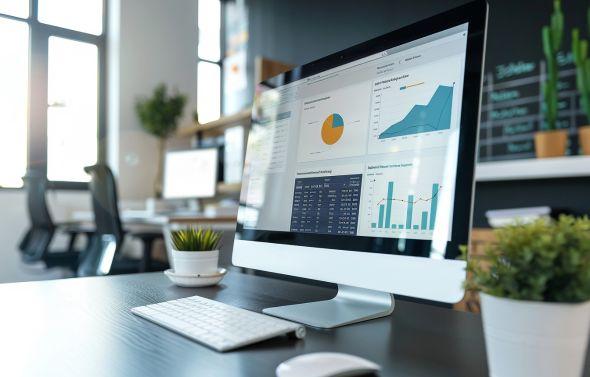
Types of Property Management Systems
Not all PMS solutions are the same. The two main categories are cloud-based PMS and on-premises PMS. Understanding the difference between them will help you choose the best fit for your business.
Cloud-based PMS
A cloud-based PMS is hosted online and can be accessed from any device with an internet connection. This makes it especially useful for vacation rental hosts who need flexibility when managing properties remotely.
Benefits include:
Accessible from anywhere.
Automatic updates with no downtime.
Easy integration with third-party tools.
Scalable for multiple properties.
On-premises PMS
An on-premises PMS is installed locally on a computer or server. While it gives full control to the host, it often requires more maintenance and upfront investment.
Challenges include:
Limited access outside the property office.
Manual updates and IT support are needed.
Higher upfront cost for setup and servers.
Less flexible for growing portfolios.
Cloud-based PMS vs on-premises PMS
Feature | Cloud-based PMS | On-premises PMS |
Accessibility | Access from anywhere via web or mobile | Restricted to local computers/servers |
Updates | Automatic, with no downtime | Manual, requiring IT support |
Scalability | Easily scales with your business | Limited, requires extra servers |
Integrations | Connects with booking engines, channel managers, payment systems | Often limited or custom-built |
Costs | Lower upfront cost, subscription-based pricing | Higher upfront cost for setup and equipment |
Best For | Vacation rentals, boutique hotels, multi-property managers | Traditional hotels or properties with fixed IT infrastructure |
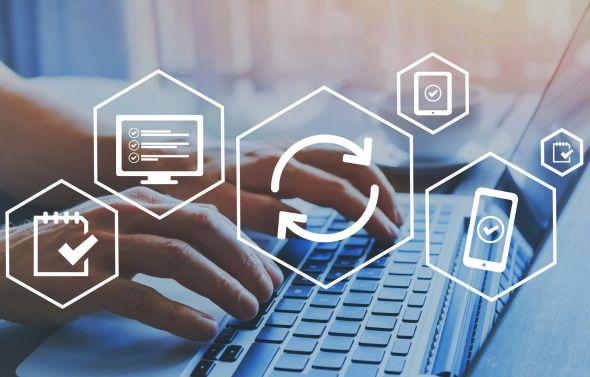
The Role of Integration and Automation in PMS
One of the biggest advantages of a modern PMS is its ability to integrate with other tools and platforms. Instead of working in isolation, PMS such as Hostaway connects with booking channels, payment systems and operational apps, creating a single, automated workflow that saves time and reduces human error.
Managing reservations, check-ins and check-outs
One of the biggest headaches for property managers is keeping track of reservations across multiple booking platforms. A property management system (PMS) acts as a central reservation system, automatically updating availability whenever a booking, cancellation or modification occurs.
This eliminates the risk of double bookings, a problem that can damage guest satisfaction and lead to costly penalties. Instead, hosts can trust that their calendars are accurate across every channel.
When it comes to check-ins and check-outs, a PMS streamlines the process even further:
Check-ins: Many cloud-based PMS platforms integrate with digital keys, smart locks or automated messaging tools, allowing guests to receive entry instructions without manual coordination.
Check-outs: Once a guest departs, the PMS can automatically trigger housekeeping tasks, schedule maintenance if needed and mark the property as ready for the next stay.
Cancellations: Any canceled reservation is instantly reflected across all booking channels, reducing confusion and ensuring hosts don’t lose potential nights to outdated listings.
By automating these workflows, a PMS not only helps property managers save time but also ensures that guests enjoy a smooth, stress-free arrival and departure experience.
Guest data and customer relationship management (CRM)
A good property management system (PMS) isn’t just about handling bookings — it also helps hosts build stronger relationships with their guests. This is where Customer Relationship Management (CRM) features come in.
By capturing and organizing information, a property management system allows hosts to go beyond the basics of check-ins and check-outs and focus on delivering personalized guest experiences.
Here’s how CRM functions within a property management system can make a difference:
Guest preferences: A PMS can record useful details like preferred check-in times, favorite amenities or requests made during past stays. This makes it easier to personalize future visits and enhance customer satisfaction.
Automated communication: Instead of sending the same template to everyone, you can schedule messages tailored to each stage of the guest journey from a warm welcome note to a friendly review reminder.
Customer loyalty: Returning guests are more likely when they feel remembered and valued. By using stored data, hosts can offer loyalty discounts, birthday messages or special offers for repeat bookings.
Enhanced guest satisfaction: The more seamless and personalized the stay feels, the more likely it is that guests leave positive reviews and recommend the property to others.
In short, customer relationship management tools inside a property management system go beyond basic operations, they provide the insights and automation that help hosts turn one-time visitors into repeat guests.
Channel management and distribution
A PMS often includes or integrates with a channel manager, which keeps listings updated across platforms like Airbnb, Vrbo and Booking.com. With channel management modules, any change you make — whether adjusting availability, adding a new property or updating pricing — is pushed out to all channels automatically.
This prevents inconsistencies, double bookings and missed opportunities while making it easier to handle high booking volumes.
Automated messaging and task assignments
For short-term rentals, automation often shines in guest communication and task management. A PMS can integrate with messaging tools to:
Send automated booking confirmations and check-in instructions.
Schedule reminders for check-out times.
Follow up with guests after departure to request reviews.
At the same time, automation extends to operations. For example, a PMS can assign cleaning or maintenance tasks the moment a check-out is logged, ensuring staff are notified instantly.
This level of automation means hosts don’t need to manually track every detail. Instead, the PMS ensures that the right message, task or update goes to the right person at the right time — all without extra effort.
Inventory management
Keeping track of which units, rooms or properties are available is another area where automation plays a key role. A PMS can integrate with inventory management tools to:
Update availability instantly after bookings or cancellations.
Assign rooms or units automatically.
Track occupancy across multiple listings with a single dashboard.
The result is more accurate availability, faster turnover and fewer operational bottlenecks.
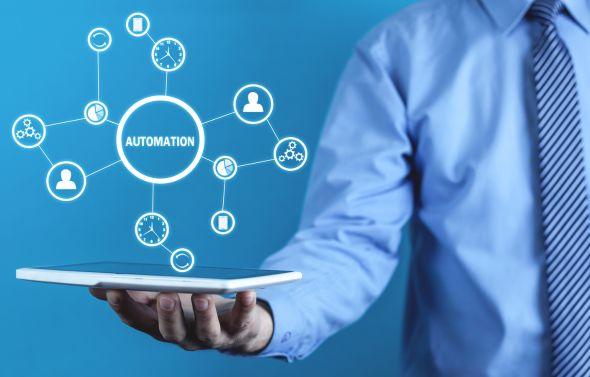
AI and Automation in Short-Term Rental Management
As technology evolves, AI-powered tools are becoming a natural extension of property management systems. For short-term rental hosts, this means going beyond simple automation to create smarter, more personalized and more efficient operations.
Hostaway was the first PMS in the vacation rental industry to introduce AI-driven features into its system. By pioneering AI adoption, Hostaway set the stage for smarter automation — helping hosts save time, improve operations and deliver more tailored guest stays.
Here are a few ways AI is shaping the future of short-term rental management:
Smart pricing recommendations: Instead of relying only on fixed seasonal rates, AI can analyze demand patterns, competitor activity and local events to recommend optimized nightly rates. This helps keep properties competitive without constant manual monitoring.
Automated guest communication: AI-driven chatbots and messaging tools can handle common guest questions instantly — from check-in instructions to Wi-Fi details — reducing response times while still feeling personalized.
Predictive maintenance: By tracking usage data from smart devices, AI can anticipate when appliances or systems might fail. This allows hosts to schedule maintenance before issues arise, improving uptime and keeping properties guest-ready.
Operational efficiency: AI can help identify patterns in booking trends or occupancy, giving managers insights into when to expand listings, adjust cleaning schedules or reallocate staff resources.
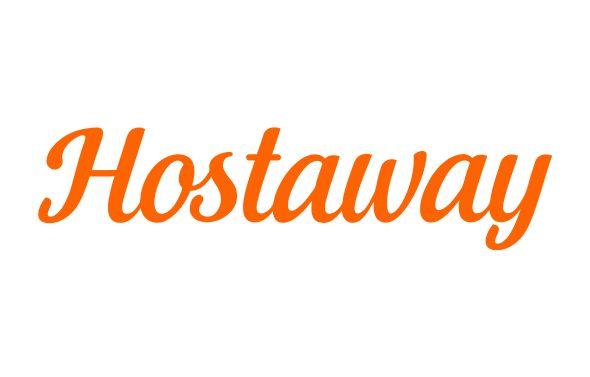
The Evolving Role of PMS in the Vacation Rental Industry
The short-term rental market has changed dramatically over the last decade. What started as a side hustle for many hosts has grown into a full-scale industry with millions of listings worldwide. With this growth has come new challenges — and new opportunities.
A Property Management System (PMS) is no longer a “nice-to-have” for professional hosts. It has become the backbone of successful vacation rental operations, supporting everything from channel management and payments to guest communication and automation.
As the industry evolves, PMS solutions will continue to play an even bigger role in shaping how hosts run their businesses. With more integrations, smarter automation and data-driven insights, the PMS of tomorrow won’t just manage reservations it will be a strategic partner for growth.
That’s why platforms like Hostaway stand out. As the first PMS in the industry to introduce AI-driven features, Hostaway continues to lead the way in helping vacation rental professionals simplify operations, deliver great guest experiences and grow their businesses with confidence.
For hosts serious about scaling in the fast-moving vacation rental industry, choosing the right PMS isn’t just about efficiency, it’s about setting the foundation for long-term success.
FAQs on Property Management Systems (PMS)
1. Can a PMS help increase bookings via my website without relying on OTAs?
Yes, many PMS platforms integrate with website builders and booking engines, allowing you to accept direct reservations. This helps you reduce OTA commission fees and build stronger relationships with guests.
2. What’s the difference between a PMS and a channel manager?
A channel manager is a tool that syncs your availability and pricing across OTAs. A PMS, on the other hand, does much more: it integrates channel management while also covering guest communication, payments, housekeeping and reporting.
3. Is a PMS still useful if I only manage one or two properties?
Absolutely. Even single-property owners benefit from automation features like messaging, cleaning task assignments and calendar syncing. Many PMS providers offer scalable plans that grow as your portfolio expands.
4. How secure is guest and payment information stored in a PMS?
Most cloud PMS providers follow strict security protocols, including PCI compliance for payments and GDPR compliance for data privacy. Hostaway, for example, partners with Stripe to process payments, ensuring transactions are encrypted, reliable and compliant with global standards. By using a trusted payment gateway, Hostaway gives hosts peace of mind that both guest and financial data are handled with the highest level of security.
Ready to find out how Hostaway can transform your business?
